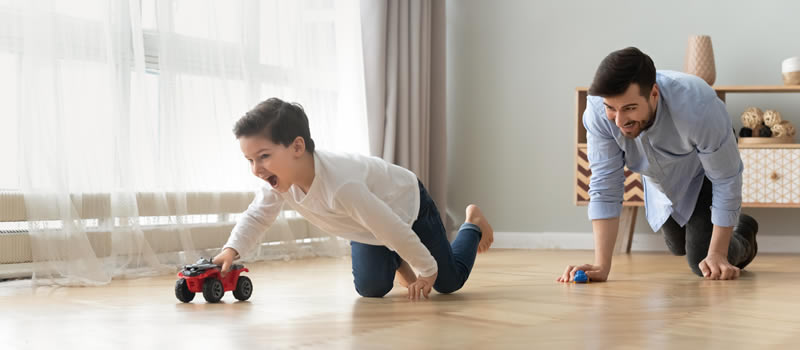Chatty Chores!
Asking your child to help you with household chores is a great way to boost his independence skills but also offers him an opportunity to practice all his language skills.
Between 2 and 4 years your child’s comprehension of complex phrases and structures is expanding. While doing the chores, children learn the verbs that describe the actions they are doing such as clean, tidy, fold, sort, etc.
When your child is helping with tidying the room, he can practice understanding spatial terms and orientation terms. For example: you tell him to” pick up the blocks from the floor” or “put the cars inside the box”
Around age 4, your child can follow complex directives that include 2 steps. For example: when you tell him to set the table, you tell him: “first, we put the plates, and then we put the forks and spoons.”. He will learn that things are done in a given order. Sequencing helps children develop organizational skills.
Around 2 years, children develop their vocabulary, and household chores are a great way to help do so in a functional manner related to daily life routines. During these activities, your child will use words such as clean, spray, broom, laundry, wipes, wet, sticky, messy, sloppy, etc. Around this age also, your child will start to combine nouns and verbs, for example: “wash dishes”, “mop floor . He will also start to combine adjectives and nouns, for example: “dirty clothes”, “ wet floor”.
If you feel that your child has difficulty in doing household chores without your help or if you have to constantly repeat what he/she should do, don’t hesitate to ask why does my child have such a hard time, and keep in mind that it could be because he did not understand what is needed to be done!
This is one of the signs that a child has difficulty in his receptive skills and language skills. It is advisable that you learn more about your child’s language development and what is expected for his age by filling ONESTI’s screening checklist and talking to our professionals.
ONESTI programs are tailored to provide you with individualized strategies and techniques to support your child and help him overcome those difficulties.




